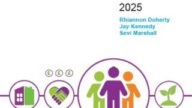Policy, campaigns & research, Policy
The Civil Society Covenant – time to move from words to actions
Here's everything you need to know about the new Civil Society Covenant.
At an event last week, the Prime Minister Sir Keir Starmer launched the Civil Society Covenant. This long-awaited agreement between the UK government and civil society organisations has been in development for a year, including a consultation process with civil society organisations and different levels of government last Autumn.
A high-powered ministerial lineup
DSC responded to that consultation and our Chief Executive Debra Allcock Tyler attended the launch event. In addition to the Prime Minister, there was a huge amount of ministerial firepower on display, including: Secretary of State for Culture, Media and Sport, Lisa Nandy MP; Chief Secretary to the Treasury, Darren Jones MP; Health Secretary Wes Streeting MP; and Secretary of State for Education and Minister for Equalities and Women, Bridget Phillipson MP. Numerous junior ministers were also in attendance.
We can hopefully take heart that this high-powered line-up signalled the seriousness of the government’s intentions to bring the expertise and knowledge of civil society organisations fully into their policy development and decision-making processes at the highest levels, especially related to the government’s ‘missions’ and key manifesto commitments. Indeed, this was illustrated at the event with examples where government and civil society organisations have been working closely together to solve critical problems, such as on knife crime and violence against women and girls.
Can we always walk together on the same two-way street?
The Covenant is essentially a set of principles, values and behaviours which describe how civil society organisations and government can best work together as part of developing ‘a new model of partnership’. It is billed as ‘a living set of principles which will help to build effective partnerships right across the breadth of civil society and government’.
Notably, the consultation process yielded significant changes from the initial outline of principles in the consultation. After months of work behind the scenes, there is a stronger focus in the final version around the importance of diversity, equality and inclusion, respecting the independence of civil society organisations, protecting human rights, and the right of civil society organisations to campaign on behalf of people without fear of reprisal from government.
The Covenant is also intended as a two-way street, including not just commitments for government and about how civil society and government will work together, but also for civil society organisations, too. For example: the need to further diversity, equality and inclusion in organisations and across the sector more widely, the importance of transparency and accountability about how funds are spent, involving beneficiaries in decision-making and giving voice and access to those with lived experience where appropriate.
On a case-by-case basis, these commitments may not always be straightforward forward for every organisation, but they’re things that collectively as a sector we should be doing and trying to improve upon anyway, Covenant or not.
The Covenant also includes some elements that could be in tension with others, and which may be more difficult for some types of organisations to get on board with. For example, organisations that typically campaign with ‘outsider’ tactics or whose beneficiaries are perceived to be the target of hostile government policy, may be unwilling to accept that ‘Civil society and government understand that they will not always agree, and that government may have to balance competing factors and priorities in its decisions’.
On the other hand, it also says that ‘Government does not treat civil society organisations which have expressed disagreement with government policies any less favourably by excluding them from policy discussions or funding opportunities.’ If your ‘outsider’ campaigning tactics include civil disobedience, does that mean you’ll still have a seat at the table with the Minister or be considered for government funding? I doubt it – some of these principles may prove hard to reconcile in some cases.
The proof of the pudding is in the eating
While the Covenant is full of many worthwhile principles and aims, many in the sector have been around long enough to have seen this movie before – for example, with the Compact put in place by the last Labour government. They’ll be wondering: sounds good, but where’s the action? How will we know if it is working? Many will probably be reserving a fair share of judgement for the moment. Similar sentiments may also be felt across local government, local health authorities, arms-length bodies, and devolved administrations.
For their part, central government has released a flurry of actions (across several web pages) which are intended to move the Covenant towards that ‘living set of principles’, rather than just another document gathering dust on a shelf. So far, these seem to be embryonic and will need much further fleshing out over the coming months. There’s also little indication at this point of how much resources or sustained political capital they will receive, to really make an impact:
- Joint Civil Society Covenant Council – to review, set direction and provide strategic oversight for the Covenant;
- Task and finish groups – focussed on policy areas that affect the relationship between civil society and government, initially on commissioning, and local level partnerships;
- Local Covenant Partnerships – to drive forward take up of the Covenant at local level;
- Civil society forum with HM Treasury – presumably to help address the perennial problem of civil society organisations not being considered in tax and fiscal policy;
- Capacity building programme – to build cross-sector capacity and understanding, including via secondments;
- Annual report – on actions to honour the Covenant and the impact for civil society;
- Online hub – to collate practical guidance, resources and tools.
Let’s make the most of the opportunity
We have to recognise that the Covenant is never going to be universally applicable to every organisation and circumstance. Plenty of organisations are not interested in partnership with any government entity, and never will be, and that’s ok. But for a set of principles to make any sense across hundreds of thousands of quite different organisations and thousands of different government institutions, they by necessity have to be top-level and conceptual; more about the spirit of the law rather than the letter.
The Covenant isn’t a contract, a set of rules, or even really a road map – it’s something akin to a mission or values statement. As such, it will inevitably be vulnerable to the kind of cynicism those statements can sometimes provoke, especially when they aren’t lived up to. It will only prove to be relevant if the principles are regularly repeated and referenced as part of building an improved culture or relationships, backed up by robust processes which underpin them.
Having said all that, over the past decade I’ve seen how the culture and relationships between our sector and central government can deteriorate rapidly, with damaging consequences. Too often, civil society organisations have been ignored, patronised, taken for granted, muzzled, and even subjected to public attacks by senior politicians, which can endanger their staff, volunteers and beneficiaries.
The language in the Covenant represents an opportunity to turn this around, partly by clearly stating that those types of characteristics aren’t acceptable and don’t deliver results for people. It may not be perfect, and will surely have its disappointments along the way. But we should avoid the cynicism and instead take a constructive approach – to seize the opportunity and build something better. Much now depends on what concrete mechanisms and resources will be put in place to support it, to ensure it is lived up to in practice.
Over the coming months we expect that there will be more to come on the Covenant – DSC will continue to push for the words and principles to be translated into actions, and we’ll keep providing you the latest information and updates as things develop.
The Covenant will also be a major feature at our Engage conference in October, where we’ll have expert speakers giving you the latest information about how you can use it to drive change in support of your beneficiaries – so don’t miss it!



